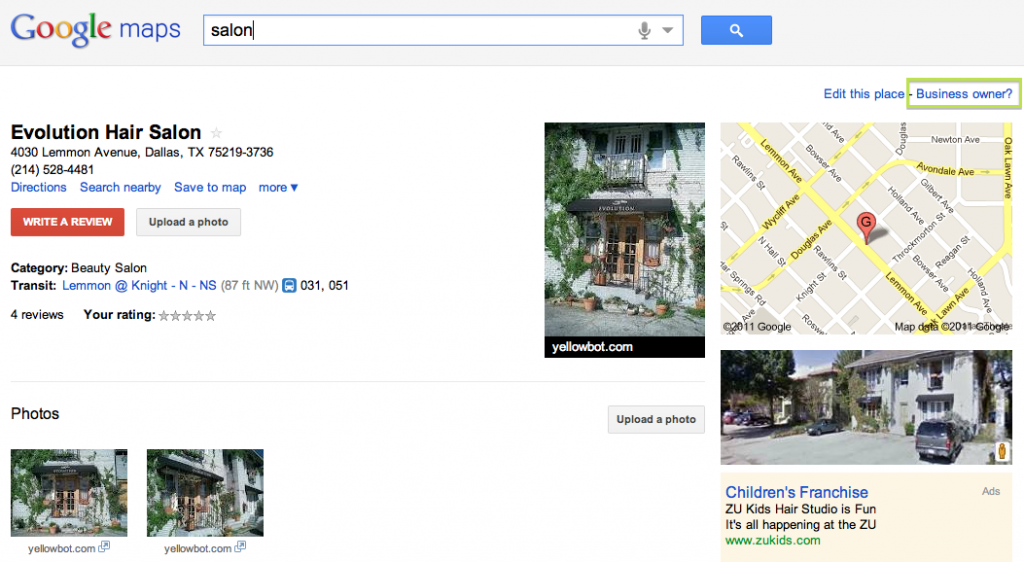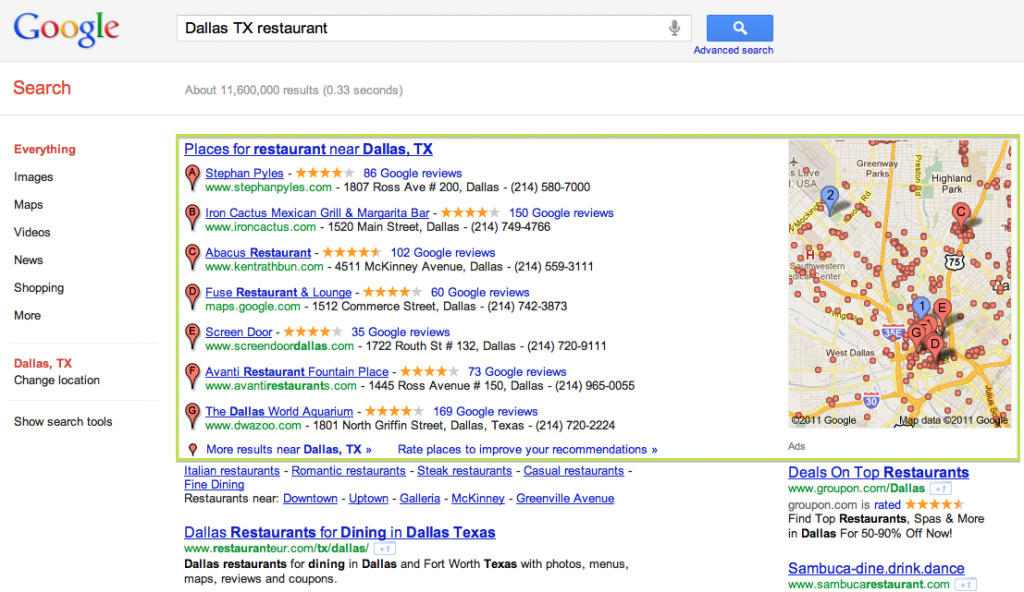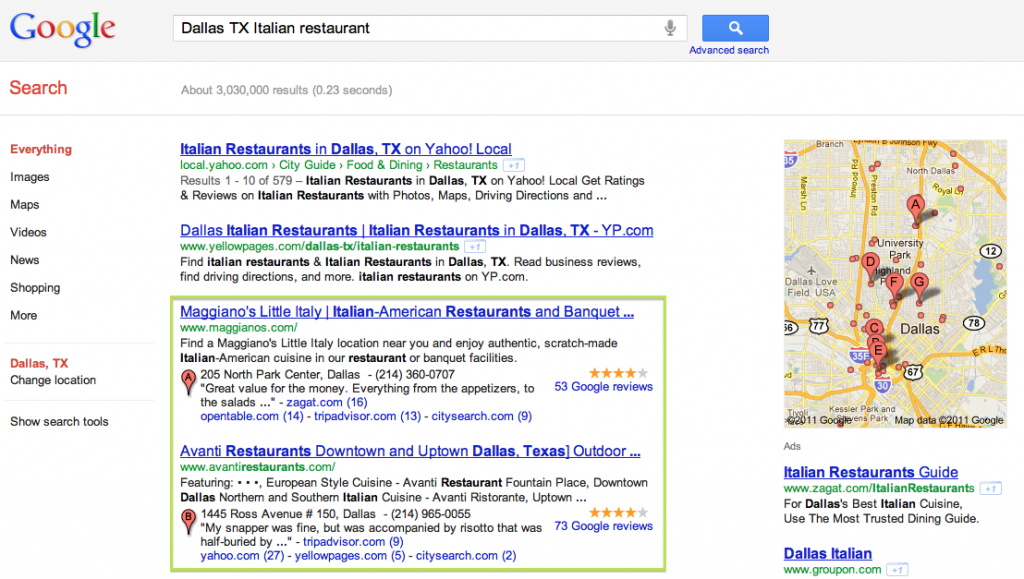If you’ve performed any local searches lately (e.g. “Dallas TX restaurant” or just “restaurant,” if you’re already in Dallas), you may have noticed that the local search results are starting to take up much of the space above the fold:
The Google Places results shown above are called “pure results.” This means that the information shown is purely from the Places listing for the given businesses. However, if you narrow your search to “Dallas TX Italian restaurant,” you get a different type of search result:
These are called “blended” results, because they contain information both from the website and Google Places. There are multiple theories about what causes the different types of results, but some good guesses are search volume, Google split testing, and personalization. But that’s a topic for another post. Today, we’ll explore what Google Places is and why claiming your “Place page” is critical.
What Is Google Places?
Google Places allows business owners to list their physical locations (e.g. a restaurant or a salon) and significantly influence the appearance of the Place page associated with their business. It also allows consumers to find a business, rate it, and share reviews online.
If you search for one of your business locations, you will likely discover that there is already a Place page for it. It may have some basic information like an address (hopefully the right one!), a phone number and a category such as “Beauty Salon.”
 The above Google Place page is an example of a Place page that has not yet been claimed by the business owner. You can tell by looking in the top right corner where it says “Business owner?”. Google gets the basic information from Yellow Pages and other third party data providers (yellowbot.com in this example). When a user performs a local search, Google takes a look at Place page information and presents the most relevant results to the user.
The above Google Place page is an example of a Place page that has not yet been claimed by the business owner. You can tell by looking in the top right corner where it says “Business owner?”. Google gets the basic information from Yellow Pages and other third party data providers (yellowbot.com in this example). When a user performs a local search, Google takes a look at Place page information and presents the most relevant results to the user.
Google Places and Relevancy
When users perform local search queries, Google weighs many different factors to determine the most relevant results to display. This is an ever-changing algorithm, but as of June this year, the experts agreed that the top three factors were based on Place page information. These are:
- Physical address of city in search
- Manually owner-verified Place page
- Proper category associations
Other factors included address/phone number matching on Place page and website, volume of traditional citations (e.g. YP, infoUSA), website PageRank, and number of quality inbound links to the website.
Bottom line: Business owners should claim their Google Place pages, fill out as much information as possible, and make sure the information matches what’s already out on the Internet and on their website.
How to Claim Your Google Place Page
The good news is that claiming your Google Place page is really easy. Remember the “Business owner?” link at the top of the Places page? All you have to do is click that link, select “Edit my business information,” and fill out the information. To prevent fraud, Google will provide you with a PIN either over the phone or via mail to allow you to complete the process.
In order to rank as high as possible in the Google Places results, fill out all relevant fields. This includes adding photos (up to 10) and videos (up to 5). You may also include business hours and payment options.
This is the time to beat the competition to the punch. There are a lot of unclaimed Place pages out there and you don’t want yours to be one of them. And as we showed in the very first screenshot, local search is taking over the top results area. You want to be there!
Claiming your Google Place page is just the first step in optimizing for local search. Web Gnomes specializes in local search marketing and would love to help you make the most of local search. Request a quote today!


[…] that you deserve to be in the 7 pack!Learn more about Google Places by reading the article “What is Google Places?“NOTE: Improving search engine rankings is only part of the puzzle. You must be able to […]